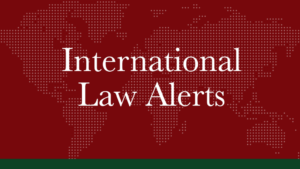
The communist New People’s Army (NPA) on Tuesday said it would open a “humanitarian corridor” to ensure the “safe and unimpeded passage” of COVID-19 vaccines through guerrilla bases and zones.
The Commission on Human Rights (CHR) vowed to continue its investigation on the alleged recruitment of children as warriors in areas of armed conflict, saying such acts constitute a war crime.
President Joe Biden on Thursday announced his intention to massively increase the cap on annual refugee admissions to the United States, which fell to a historical low under Donald Trump.
Humanitarian aid workers frequently complain of ‘drowning in paperwork’ and working for agencies that are ‘bloated’ and ‘labyrinths’. They blame bureaucratic hurdles for impeding the delivery of aid during emergencies such as the conflict in South Sudan and the 2015 Pakistan earthquake.
And yet bureaucracy is fundamental to success for a humanitarian response. Stripped of negative ‘red-tape’ associations, bureaucracies are simply the systems and procedures that an organization uses to streamline complex operations
Exacerbated by the COVID-19 pandemic, many of the world’s most vulnerable people find themselves increasingly at risk of facing humanitarian crises. Even before the pandemic, the World Bank estimated that more than half of the world’s poor will likely live in fragile and conflict-affected settings by 2030, up from less than 20% in 2016.
Climate change will play no small part in increasing the likelihood, frequency, and intensity of conflict, worsening drought and flood conditions and generating greater numbers of extreme weather events.
Protracted conflict and unprecedented levels of displacement have broken down the barriers between development and humanitarian work, prompting humanitarian organizations to engage more with social protection systems.
While this presents another entry point to support affected populations in the medium- and long-term, it also stresses the importance of the principles of neutrality, impartiality, independence, and humanity in humanitarian action (NIIHA) which, if compromised, could impact the trust of parties to a conflict or affected populations, as well as access to the latter.
Twenty-two years ago, under the auspices of UNESCO, the international community adopted the Second Protocol to the 1954 Hague Convention on the Protection of Cultural Property in the Event of Armed Conflict, reiterating its will to preserve cultural property during even the most tumultuous of times.
As armed conflicts intensified across Europe in the early 1990s, the effectiveness of the 1954 Hague Convention became a subject of general concern, prompting the government of the Netherlands to launch a reflection on whether it needed to be reviewed







































































































 on the upper right corner to select a video.
on the upper right corner to select a video.